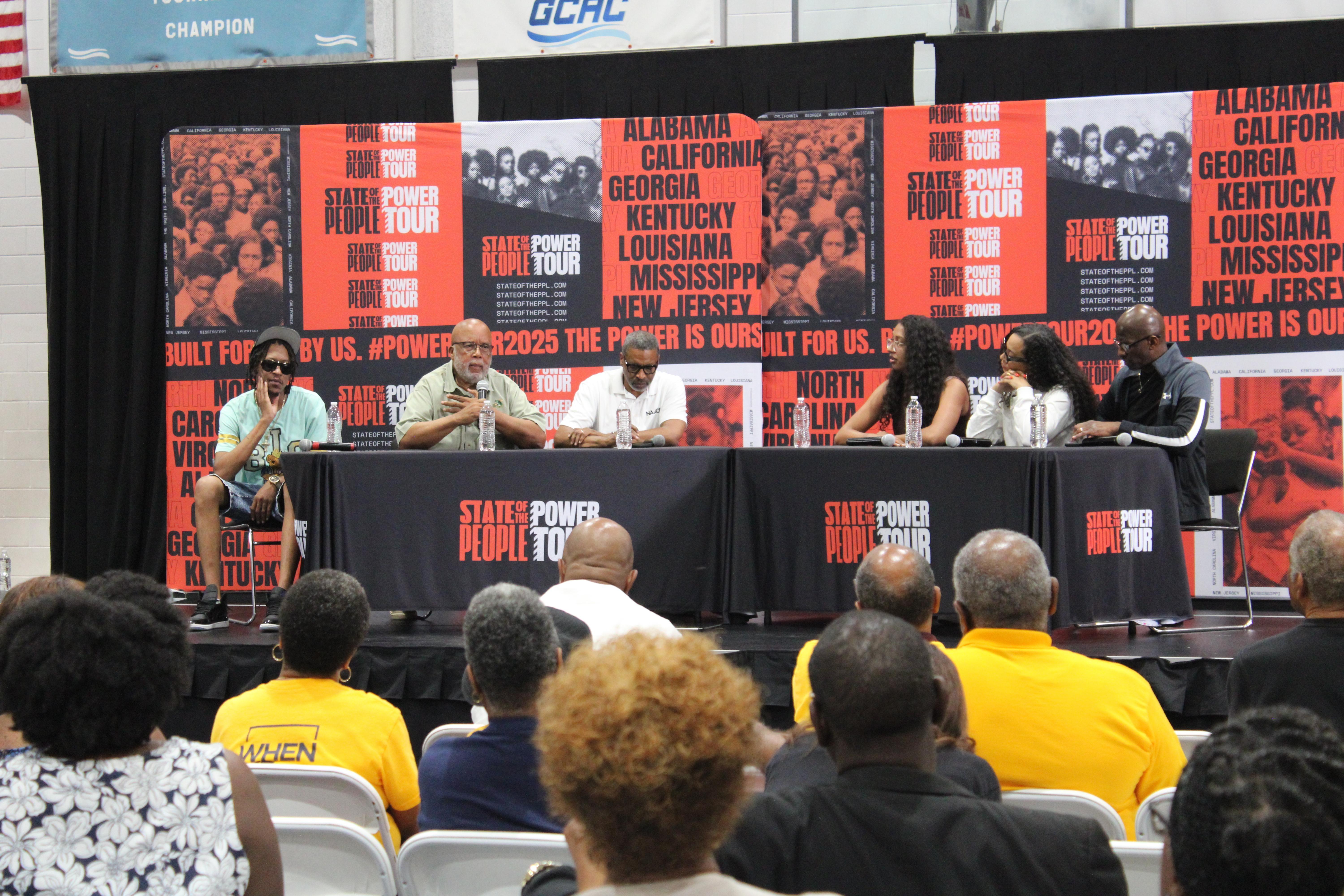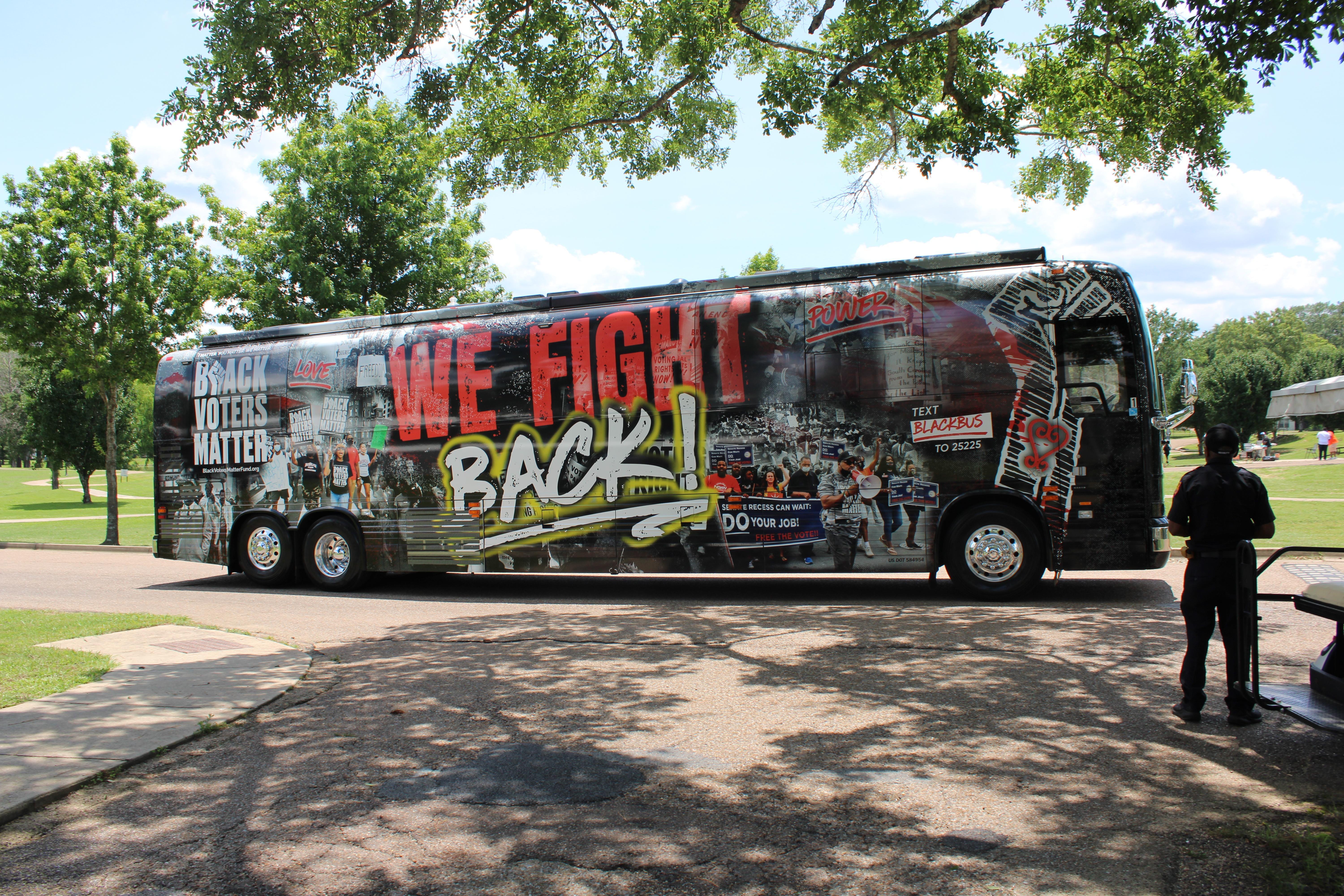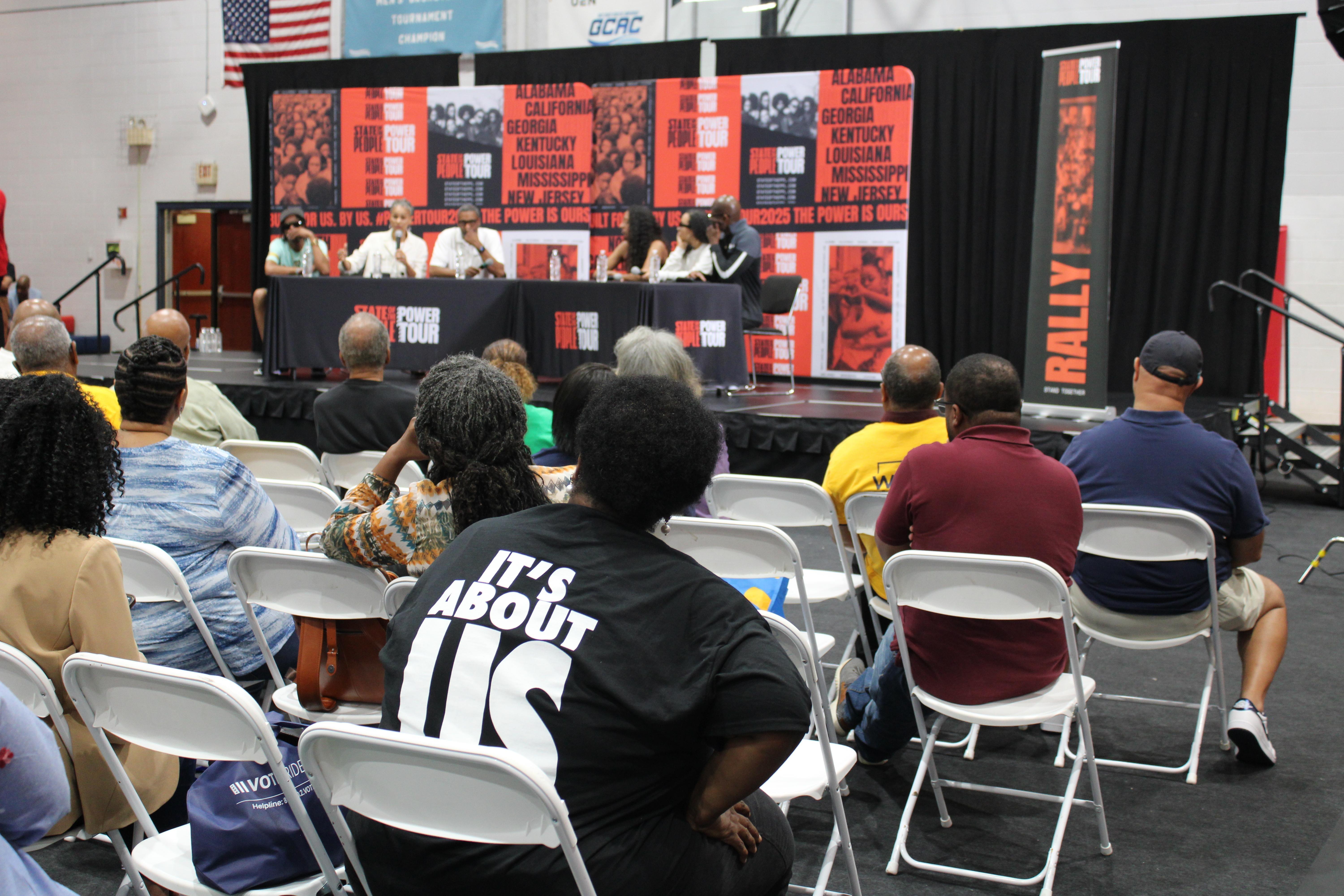Thompson acknowledged that his party had issues.
“We need some work. We need a lot of work,” he said. “It's part of what happens in the South, is they count our numbers, but they don't count our intellect.”
Although many of the discussions held during the tour explored issues unique to Mississippi, many of the panels during the tour discussed the regional impacts of the Trump administration’s policies. NAACP president and CEO Derrick Johnson says this has importance even outside of the Black community.
“If you cut SNAP benefits, that impacts farmers,” he said. “If you cut Medicaid by $800 billion, that means individuals who are in nursing homes will have to find somewhere else to go. That's not a race issue. That's not a gender issue.”
Youth engagement was another major theme the tour tried to tackle. Vicksburg native Paul Winfield II is the chair and founder of the political action committee, GenZ Forward.
“I think that the impact of young people can never, ever be negated,” he said. “We see so much stuff about young people, about our futures, whether it's Medicaid cuts, food stamp cuts, Social Security probably being solvent by the time I turn 65. And of course, the way that they're changing student loans and making it more difficult for people my age and people younger than me to get a good education in college, whether it's a two year or four year or graduate school.”
Waikinya Clanton, the Mississippi state director for the Southern Poverty Law Center, says the tour was also a reclamation of Mississippi’s importance within the legacy of civil rights.
“Jackson is just kind of like our representative when it comes to the battles and the struggles of Mississippi,” she said. “But in every community in all 82 counties across the state, people are being faced with just the ramifications of this self-righteousness that we are experiencing here as a country. I just think that what was beautiful for me today was to see hundreds of Mississippians come from all across the state to be a part of this moment, to say that they won't go silently into the night, that they will stand up for their rights.”
The tour will end in Baltimore in commemoration on June 19, or Juneteenth.






